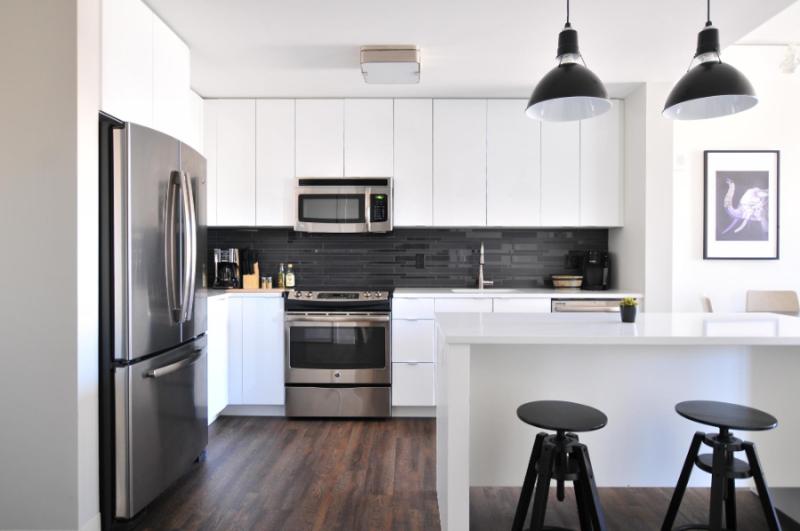Key Factors Affecting Your Home's Resale Value

For many, a home is more than just a place to live; it's a significant investment. Whether you're a first-time homeowner or a seasoned property investor, understanding the factors that affect your home's resale value is crucial. This article delves into some of the top determinants that can significantly influence how much your property will fetch on the market, helping you make savvy decisions for the long haul.
Upgrades and Renovations
Smart and stylish upgrades can revitalize a space and spike a home's valuations. But be wary—overcapitalizing on renovations without a guaranteed return on investment can be a pitfall. The key is to focus on renovations that universally appeal to buyers, like updated kitchens and bathrooms. Identifying reliable service providers, like Rannebarger Home Maintenance, can ensure that the work done on your property not only enhances its aesthetic appeal but also its structural integrity, which is a significant factor in determining a home's resale value.
Location, Location, Location
The timeless real estate mantra holds true because the home’s location influences the quality of life. Proximity to good schools, work opportunities, and amenities can drastically enhance property values, while homes situated near noisy highways or industrial zones may be less appealing to buyers.
Property Age and Condition
Newer homes might include modern features and require less immediate maintenance, potentially fetching a higher price. However, older homes that have been well-maintained or thoughtfully updated can also be highly desirable, particularly if they boast historical significance or charm.
Market Trends
The housing market is dynamic, with prices ebbing and flowing on the tide of economic conditions, interest rates, and consumer confidence. Understanding current market trends, along with local supply and demand, can provide insight into your home's potential resale value.
Noise Levels and Privacy
Noise from busy streets, airports, or neighbors can be a deal-breaker for many buyers. Privacy is another prime concern; homes that offer a peaceful, private setting are prized and can command higher resale prices.
Home Size and Layout
Size does matter when it comes to property value. Larger homes typically offer more appeal, but a well-designed layout that maximizes usable space can also command a premium. Open floor plans and multi-functional spaces are in vogue, contributing to a property's allure.
Curb Appeal
The importance of first impressions cannot be overstated. Curb appeal—the attractiveness of a property's exterior—can dramatically affect a home's perceived value. Simple landscaping, a neat lawn, and a fresh coat of paint can do wonders for luring potential buyers.
Energy Efficiency
With rising utility costs and a growing environmental consciousness, energy-efficient homes are increasingly sought after. Features like double-glazed windows, efficient HVAC systems, and solar panels may give your home an edge in the resale market.
Zoning Laws and Future Development
Upcoming zoning changes or developments can affect future property values. Being informed about potential shifts in land use or large-scale construction can influence the timing and price of your home's sale.
Quality of Schools
A factor worthy of its own mention is the quality of schools within the home's school district. Excellent schools can be a driving force in home purchase decisions, making a notable difference to buyers with young or school-age children. Consequently, superior school districts may see higher property values and stronger demand, leading to an advantageous position when reselling your home.
Technology Readiness
In our digital age, homes that are equipped to handle the latest technology—from high-speed internet access to smart home features—have a clear advantage. These add-ons can significantly raise your home's profile among tech-savvy buyers.
Historical Value
Homes with a rich history or unique architectural design often attract a niche market of buyers looking for character and individuality. Maintaining the integrity of historically significant features, when coupled with modern conveniences, can make a property especially appealing and would potentially increase its resale value disproportionately more than modern counterparts in the same area.
Local Community and Neighbourhood
The quality of the local community and neighborhood can profoundly impact home values. Safe, friendly, and community-oriented neighborhoods with great amenities, like parks and recreational facilities, are extremely attractive to buyers.
Additional Considerations
While the factors listed above play significant roles in determining a home's resale value, other considerations such as cultural trends, demographics, and future community planning should not be overlooked. The cultural composition of a neighborhood and its appeal to certain demographics, for instance, can drive demand and impact property values. Moreover, the municipal future development plans that promote sustainability and livability in a community can enhance its attractiveness, positively influencing home prices over time.
Conclusion
Navigating the complexities of property value is no simple task, but by understanding and acting upon these key factors, homeowners can better position themselves in the ever-shifting currents of the real estate market. While no one has a crystal ball to predict the future, staying informed and proactive can help secure your investment and ensure that when the time comes to sell, your home stands strong in market appeal. The addition of these further aspects into your consideration can equip you with an even broader perspective on what determines your home's worth in the real estate marketplace.
More to Read:
Previous Posts:




